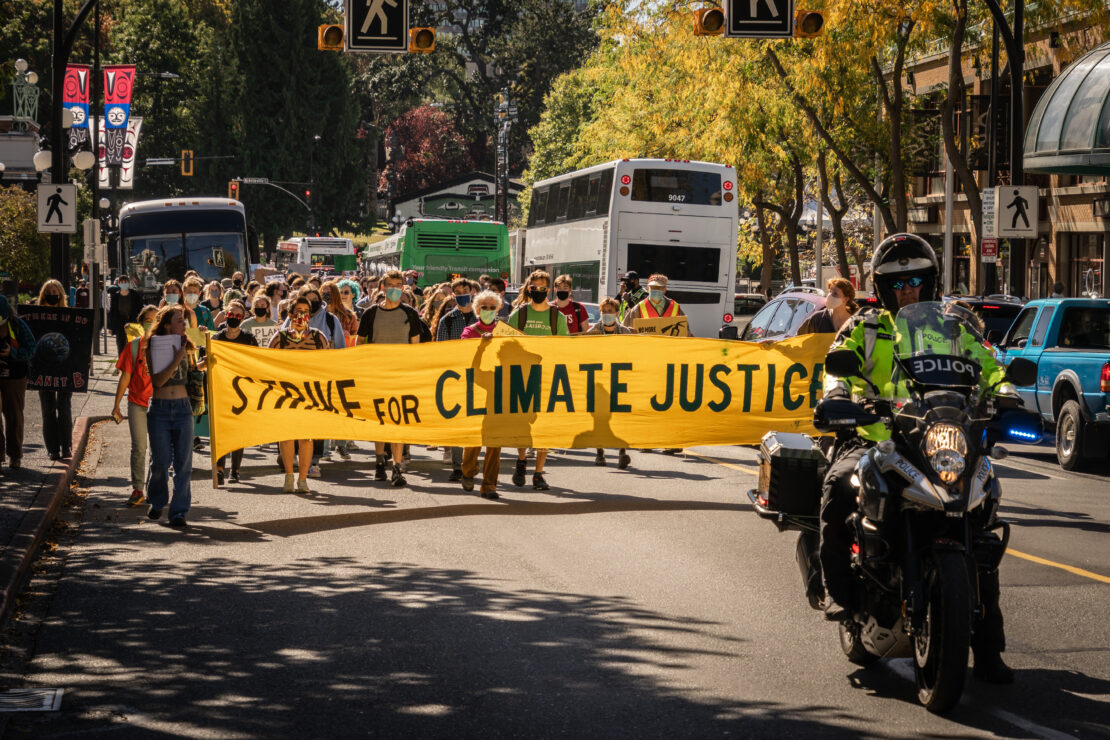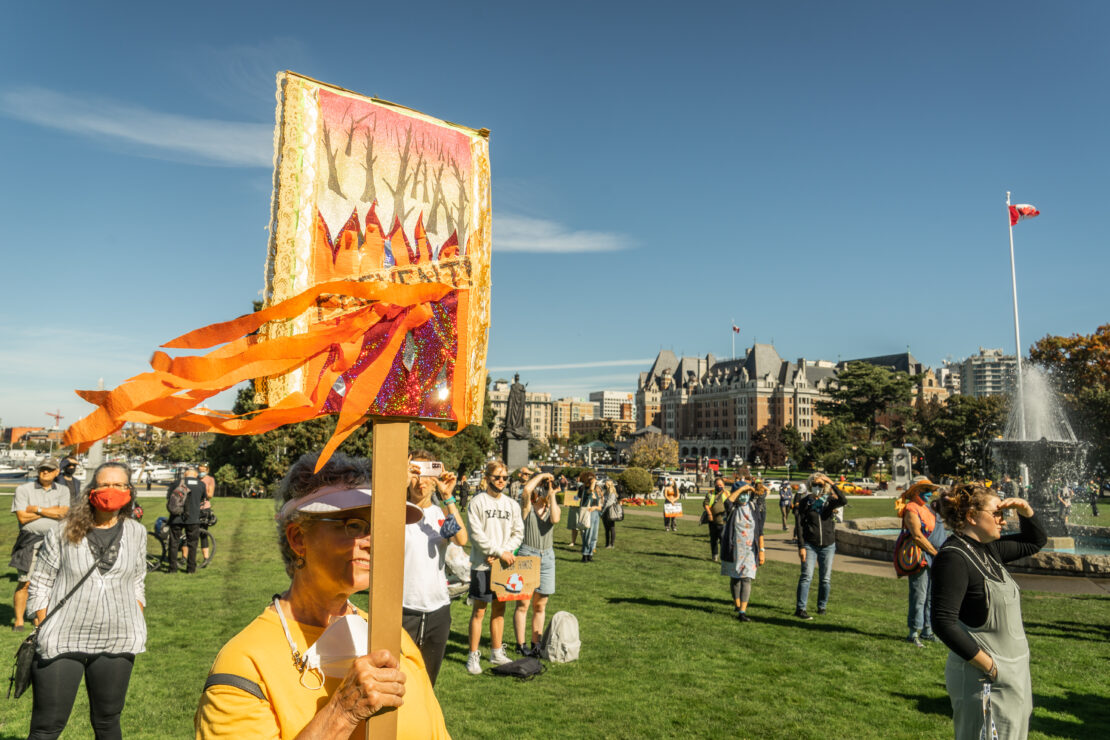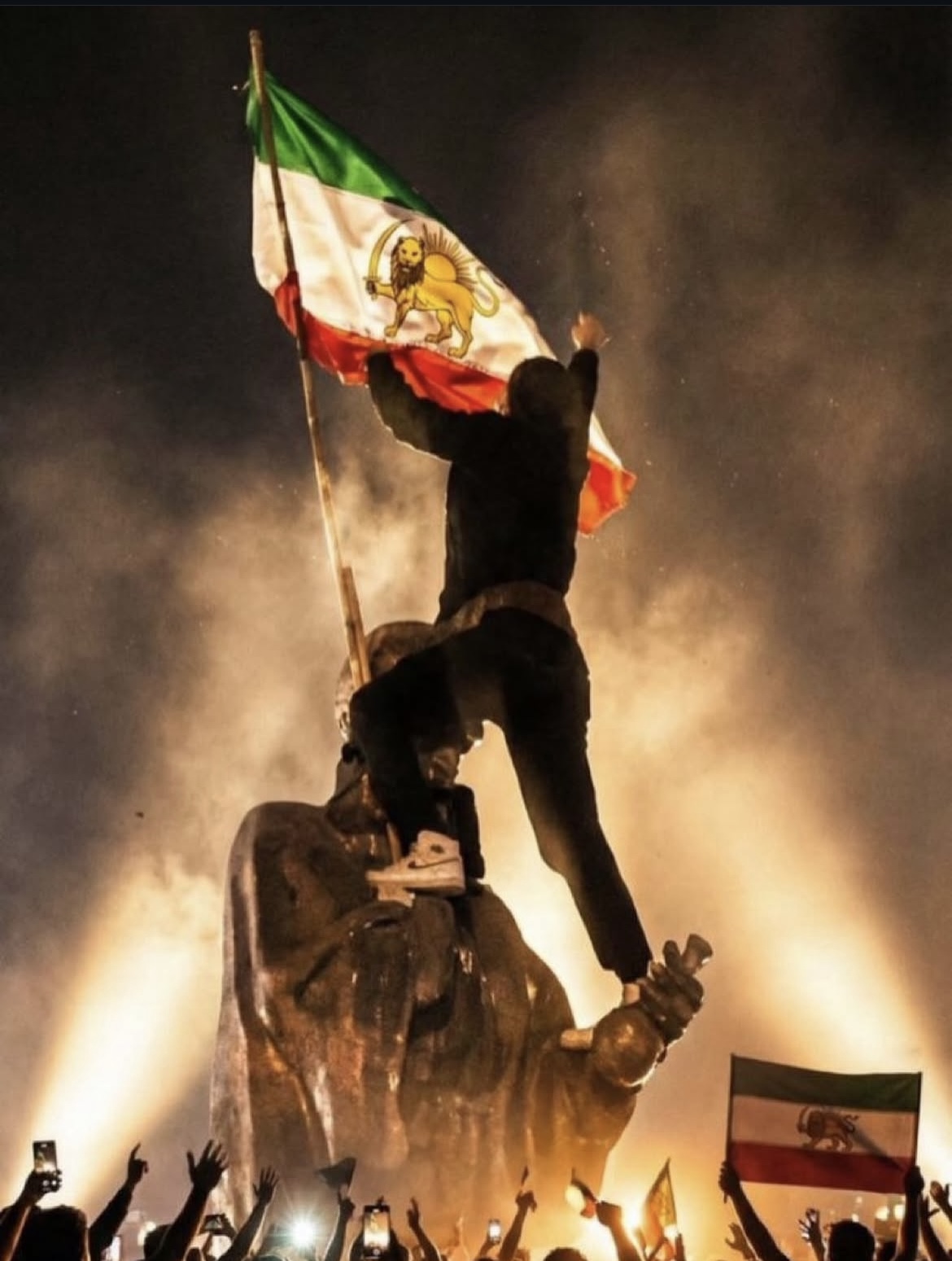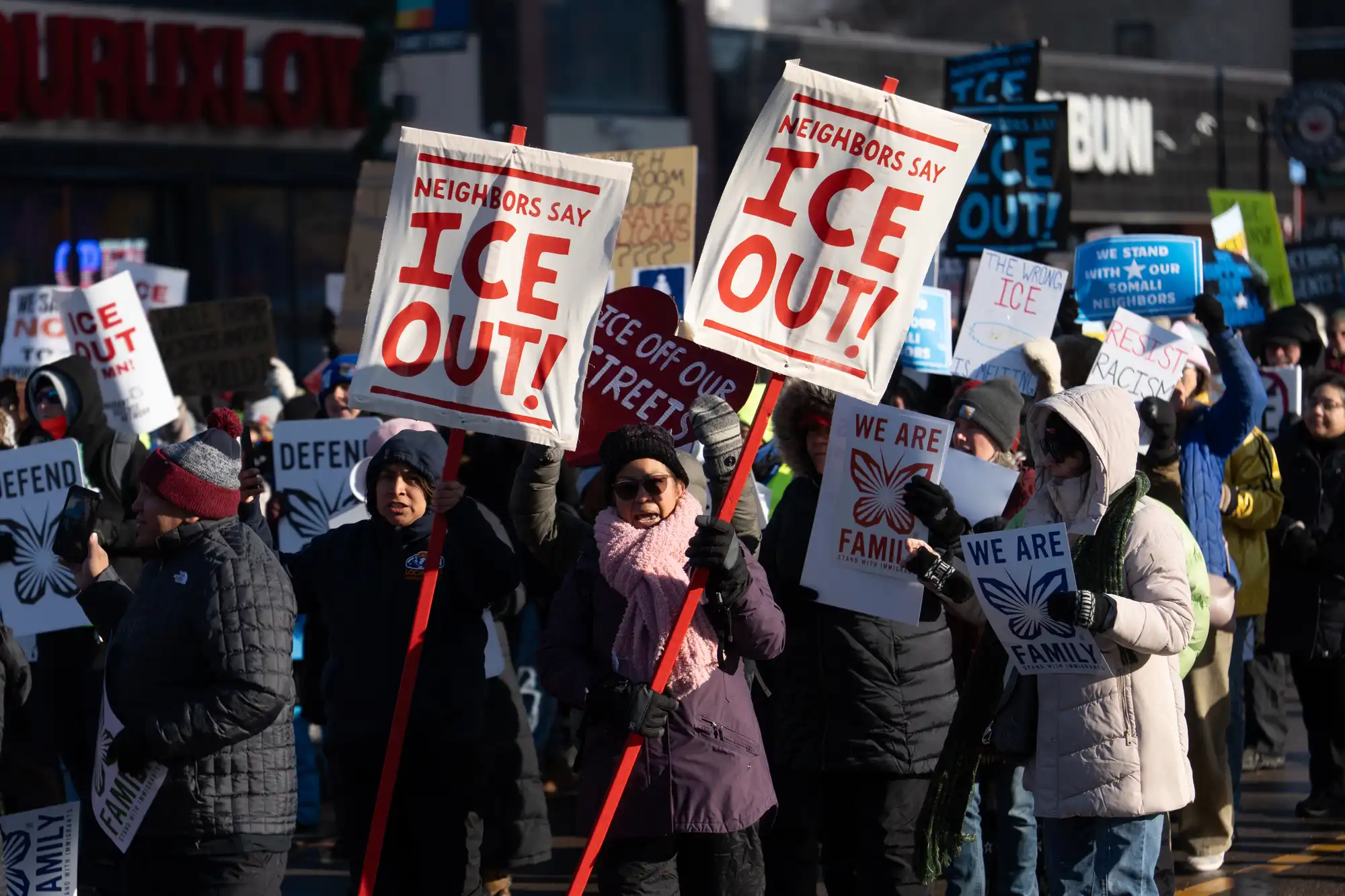Activists highlight experiences of Indigenous people, youth, people with disabilities

Around 11 a.m. on Sept. 24, students began to congregate outside the doors of the Student Union Building after walking out of their classes. Organized by Divest UVic, they were headed downtown to participate in a global climate strike.
The strike, organized by Our Earth Our Future Victoria in line with the global organization Fridays for Future, was intended to demand climate action from governments and emphasize the importance of climate justice. Climate justice refers to countering the disproportionate effects of climate change experienced by certain groups, like Indigenous and racialized people.
“The climate crisis does not exist in a vacuum. Other socio-economic crises such as racism, sexism, ableism, class inequality, and more amplify the climate crisis and vice versa,” says a statement from Fridays for Future about the Sept. 24 strike.
UVic students joined a crowd outside the legislature and listened to speakers, including students from Vic High and Victoria Youth Poet Laureate James Summer. The group, composed of a few hundred people, marched down Douglas Street to Centennial Square, where the rally continued.
At Centennial Square, the speakers highlighted the uneven effects of climate change on marginalized communities, as well as the barriers that different people face when participating in climate action.
Eli Anderson, a 14-year-old student from Vic High, spoke in recognition of the work of climate activists with disabilities.
“Many disabled people and people with chronic pain have been told they are liabilities,” they said. “I am so proud of you. This movement would not be possible without you.”
Anderson also called for increased government accountability in the wake of the federal election. He called for Prime Minister Justin Trudeau and Premier John Horgan to keep past election promises, like ending boil-water advisories on Indigenous reserves and protecting old-growth forests.
Next, another speaker told the crowd about their involvement at the anti-old-growth logging blockades at Fairy Creek. They said they were arrested and experienced police violence.

Climate strikes are of particular importance for young people, says Anderson.
“It’s truly about the fact that it is our future that we’re fighting for,” they said, in an interview with the Martlet. “The reality of it is that the people who are going to be experiencing most of the effects of climate change are us and our children.”
Though the crowd was fairly young, there was turnout from people of all ages: other signs included “save the planet for our grandchildren” and “parents 4 climate.”
Divest UVic worked hard to increase student turnout in the week leading up to the strike. Volunteers wrote details about the strike on surfaces around campus using chalk, and did their best to spread the word on social media.
Robin Pollard is the UVSS director of campaigns and community relations and an organizer with Divest UVic. She sent an email to UVic professors earlier that week, asking them to cancel their classes that overlapped with the strike and not penalize students choosing to attend the strike instead. Pollard says they got some instructors to cancel their classes, but others were less supportive.
For Pollard, a big part of getting students out to the strike was to support climate justice.
“Changing and dismantling these systems that uphold all these injustices is definitely part of what we were marching for,” they said.







